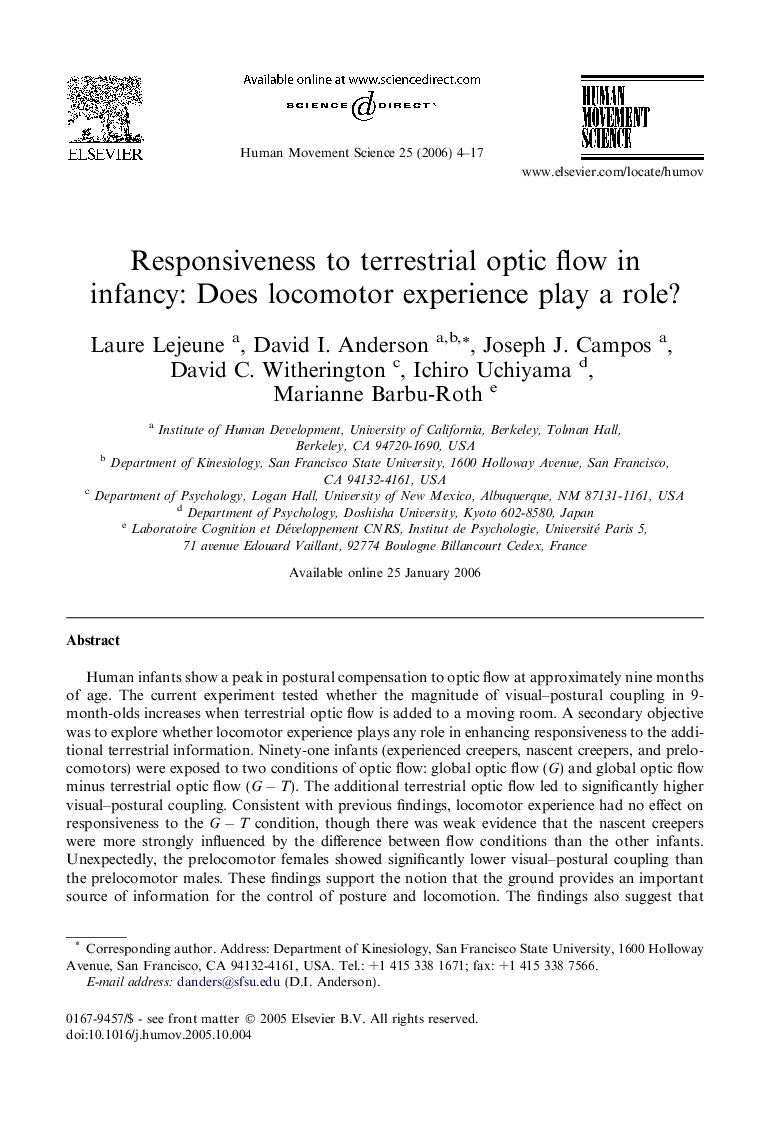| کد مقاله | کد نشریه | سال انتشار | مقاله انگلیسی | نسخه تمام متن |
|---|---|---|---|---|
| 928968 | 922414 | 2006 | 14 صفحه PDF | دانلود رایگان |

Human infants show a peak in postural compensation to optic flow at approximately nine months of age. The current experiment tested whether the magnitude of visual–postural coupling in 9-month-olds increases when terrestrial optic flow is added to a moving room. A secondary objective was to explore whether locomotor experience plays any role in enhancing responsiveness to the additional terrestrial information. Ninety-one infants (experienced creepers, nascent creepers, and prelocomotors) were exposed to two conditions of optic flow: global optic flow (G) and global optic flow minus terrestrial optic flow (G − T). The additional terrestrial optic flow led to significantly higher visual–postural coupling. Consistent with previous findings, locomotor experience had no effect on responsiveness to the G − T condition, though there was weak evidence that the nascent creepers were more strongly influenced by the difference between flow conditions than the other infants. Unexpectedly, the prelocomotor females showed significantly lower visual–postural coupling than the prelocomotor males. These findings support the notion that the ground provides an important source of information for the control of posture and locomotion. The findings also suggest that locomotor experience most likely helps to functionalize smaller (partial), rather than larger (global), optic flow fields for postural control.
Journal: Human Movement Science - Volume 25, Issue 1, February 2006, Pages 4–17